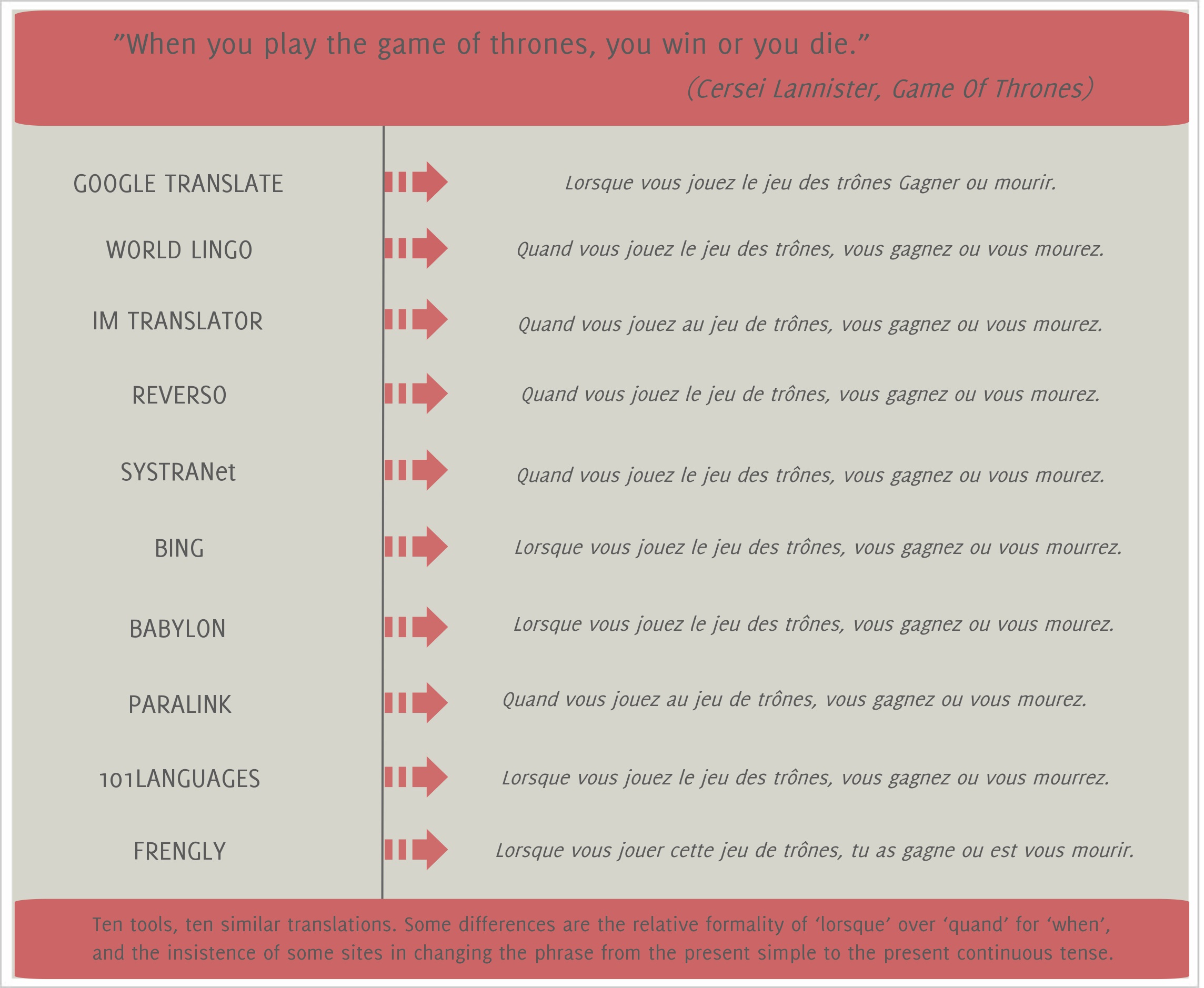Free Translation Tools: A Look at the Best and Worst
Posted on February 2nd, 2015 in Translation
From Google Translate to Babylon: navigating the minefield that is free translation when learning a language (and how to avoid embarrassing mistakes).
The Force is Strong…

Photo via V-kony/Deviant Art
There is an internet rumour/urban legend that goes like this: in Star Wars, Yoda’s unique style of speech was created by first translating his dialogue into Hungarian and then translating it directly back into English, word for word. Hungarian has a very different word order to English and makes use of suffixes rather than prepositions, resulting in ‘Yoda-tongue’ when back-translated.
Whether there is any truth to this is unclear, but what is likely true is that, were the internet available during the writing of the Star Wars script, a whole world of translation tools could have made Yoda’s speech even more grammatically bizarre.
To Translate or not to Translate?
Whether you want to know the meaning of an individual word or need a legal document translated for all sorts of reasons like studying abroad, becoming a citizen of a foreign country, or getting married really dictates where you look for help and what kind of tool you use.
Cost is, naturally, a limiting factor, as is time: the internet has shaped our society into one where the phrase ‘instant gratification’ is no longer a by-word for ‘spoilt brat’, it is something expected by us all: we want it now, and more than this, we want it free. Preferably whilst we’re waiting for our favourite TV show to download and our Instagram photos to upload.
While there is nothing like using the skill of a bilingual speaker to ensure we are saying what we really mean, when an actual on-the-spot translation is unavailable and time is pressing, we find our fingers seeking out the answers online.
Translation Tools: What can they Offer?
There are hundreds of different free online tools out there, but are any of them any good? Is it worth risking that Chinese translation of ‘peace’ coming back as ‘egg fried rice’ and being tattooed on you forever more?
Here is a sample of what is available out there, and how they compare, using a phrase translated into French:
For an approximate translation, all are reasonable. For ease of use, Google Translate and Bing win hands down. IM Translator and Paralink offer multiple translation platforms (notably, Google, Bing and Prompt). In terms of the amount of translatable languages, 101languages provides the most (132 languages) and Reverso comes in last (13), which does actually make you wonder about the quality of the translation work. Google, Bing and Frengly provide automatic language detection, and if you want to translate something a little more ‘exotic’ then look no further than Bing for Klingon and 101languages for Dothraki. You know, if you want.
All offer numerous additional services such as direct translation of websites, imbedded links for your own blogs, dictionaries, and so on. Frengly follows Google and Bing in their sleek and minimalist design, whereas IM Translator feels thrown-together and messy and 101languages is almost encyclopedic in its usefulness, meaning finding the actual translation tool is harder than it needs to be.
Aside from these tools there are hundreds more, specific to individual languages with more dedication to correct translation than being a blanket ‘we translate all’ outfit.
What is Appropriate?
There are pitfalls, of course. Formality, colloquialisms, and a whole world of potential misunderstandings. What is good for Tumblr might not be appropriate for a Powerpoint used in an international conference call between colleagues. When considering which translation tools to use, ultimately it is up to you: how important is accuracy over fluency, perfection over getting-your-point-across without errors?
So, if there is a word on the tip of your tongue that you really want translating now, go on, reach out for one of the many tools out there; what harm can it do?
If, however, you truly want to avoid the night sweats of poor translation shame, there really is only one solution: get the translation done by a professional, bilingual speaker who knows how to prevent you from foot-in-mouth slip-ups. Because it is never, ultimately, about an individual word. Real translation comes from knowing the language inside and out, and what words will get you slap on the back or a slap in the face.
***
If searching for translation services has brought you here, see what we have available to save you from yourself! From document and website translation to interpretation, we have the solutions you need.





